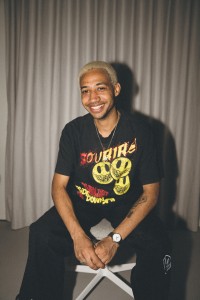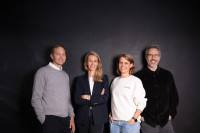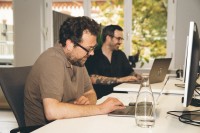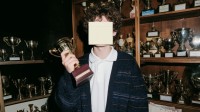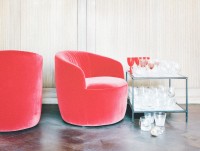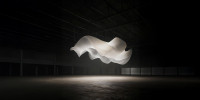Advertising with Pop Culture Relevance
200 Zeichen Lorem ipsum dolor sit amet, consectetuer adipiscing elit. Aenean commodo ligula eget dolor. Aenean massa. Cum sociis natoque penatibus et magnis dis parturient montes, nascetur ridiculus mus. Donec quu.
Kim Notz
28. May 2024
Every decade has its own wave of agency foundations — and those, in turn, are closely tied to the dominant advertising media of their time. Contrary to what some advertisers still claim, the “Big Idea” is never entirely independent of the channels through which it is played out. Today’s media — what we still call social media for lack of a better term — operate by very different rules than TV, websites, or print.
Since the rise of the internet, the number, size, and significance of niches have been steadily increasing. As a counterbalance to the often-lamented fragmentation of marketing channels, we now see pop-cultural phenomena emerging from those niches and spilling over into the mainstream. After all, pop comes from popular — and achieving a certain level of popularity, at least within the target audience, is one of advertising’s key objectives, if not the most important one.
Lorem ipsum dolor sit amet, adipiscing elit.
That’s why advertising has always drawn heavily from pop culture. In recent years, this has given rise to agencies identifying as “culture marketing agencies.” Presence, based in Berlin — whose co-founder Lucas Schneider joined me as a guest in episode #112 — is now trying to move away from that label. Communication, he argues, must always embody both zeitgeist and pop culture.
The task for advertisers, then, is to blur the boundaries between advertising, pop culture, and different genres. Advertising should once again be fun — something people genuinely want to see and even clamor for, because it feels like a natural part of pop culture. For Presence, it is therefore crucial to be part of the scenes it engages with, or at the very least, to connect credibly to them.
Supporting the agency in this is a six-member board drawn from the founders’ circle of friends and acquaintances, covering art, fashion, gaming, music, and entertainment. Each board member holds a small equity stake, alongside the four-person founding team and parent agency David+Martin, which retains a majority share.
Passion Projects
IOn the board, for example, sits Herbert Hofmann, VP Creative at Highsnobiety, who serves as a sparring partner on fashion topics. Representing art is Nils Müller, founder of the gallery Ruttkowski;68, with locations in Cologne, Düsseldorf, New York, and Paris. Gaming is covered by Cengiz Tüylü, a co-founder of Mousesports, and Bernhard Mogk of the ESL FACEIT Group. Music and entertainment are represented by singer and actress Lary (born Larissa Herden) — a longtime friend of Lucas, with whom he went to elementary school.
Beyond the agency’s core business, the founding team also runs several passion projects that strengthen their credibility and presence within the scene. Malte Bülskämper has been producing the Studio Talks podcast for years, a platform for young artists — with a book project now emerging from it.
They are also helping American director Daniel Derro Regan bring his film The Sum of Many, about a Berlin boxing club, to Germany. These initiatives aren’t backed by clients but are driven by personal interest and the desire to collaborate. As a result, the studio maintains a visible presence across different cultural scenes.
Lucas and Martin Eggert — who, along with David Stephan, co-founded David+Martin — already knew each other from their time together at the creative agency Heimat. It was also at Heimat that Lucas first met Malte Bülskämper, whom he later crossed paths with again at Antoni. In addition to the two creatives, the founding team includes Dina Dedić, who came from the PR agency BAM, and strategist Fanny Riegel, formerly at diffferent.
A Different Access to Talent
As a spin-off from David+Martin, Presence was founded a year ago out of the question: how would one start an agency today — and what would need to be different compared to 2015, the year David+Martin was established? Would it even still be called an agency? For self-description, Lucas prefers the term creative studio, not least because of the scale. Today the team counts ten people, with the goal of growing to around 15–20 in order to keep things dynamic and fluid. Depending on the project, they bring in external talent and support.
To keep things clearly distinct, David+Martin and the founding team decided to give the spin-off its own brand rather than positioning it as a sub-brand of the parent agency. That choice comes with both advantages and drawbacks, but one of the advantages is that Presence doesn’t even have to present itself as an agency. As a studio, they have access to talent they likely wouldn’t attract as a traditional agency. This is evident in the unsolicited applications they receive. Agencies are still too often associated with “brown bread” routines — long working hours and rigid approaches — which can put off applicants who are looking for more creative freedom.
I hardly know any agencies that still cling to the old world of long workdays and weekend hours as the default. Still, the narrative persists, and today’s agency reality struggles to shake it off. Of course, there will always be overtime in agencies, as in other industries. But excessive presence is no longer something you can sell to anyone — and Lucas himself has no desire to return to those days.
With focus, the right people, and good coordination, it’s possible to avoid that without sacrificing quality. From a business perspective, endless overtime rarely makes sense anyway, since it’s hardly ever compensated.
Entirely Different Mechanisms
When looking for role models, they look less to agencies and more to small studios like Ill-Studio and Convoy in Paris, or Uncommon in London. For clients such as Mercedes-Benz, Louis Vuitton, or Hermès, these studios create global campaigns with pop-cultural relevance — but driven by entirely different mechanisms. A good example is the Audemars Piguet collaboration with Travis Scott.
Among Presence’s first clients is prosthetics and orthotics manufacturer Ottobock, a company that has been involved with the Paralympics for over thirty years. For Paris 2024, they are developing a campaign highlighting the obstacles and challenges the host city poses for people with disabilities.
Lorem ipsum dolor sit amet, adipiscing elit.
While the Olympics are pop culture in their own right, the creators of the Ottobock campaign also want to connect the brand with a high-end French sportswear label — staging it in a new context that may previously have been out of reach. In addition, the studio was approached by photographer friends from the luxury and high-fashion world, interested in shooting an editorial featuring Ottobock’s futuristic, meticulously designed products.
So beyond campaigns, the work may also involve brand partnerships or PR activations. This naturally raises the question of compensation models. In addition to the standard hourly billing, Presence is also aiming for performance-based packages. That, in turn, creates an incentive for the service provider to handle projects far more efficiently.
Find more here:
Kontakt
